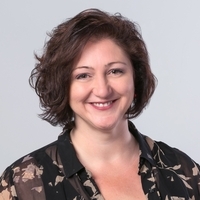Part of being a professional is continuous learning. I recently attended the American Society of Safety Engineering (ASSE) professional development conference in Las Vegas which had over 225 sessions within 19 different topic groups ranging from safety management, risk management, technical sessions, international issues and industry specific information. It is amazing as OHS professionals we are expected to have expertise in a wide range of areas — the traditional safety management aspects, but also environmental management, hygiene, products, workers compensation, and the list goes on. Being at this conference made me sit back and think: Where do we go to get our professional development?
I found that this conference, with its wide array of presenters and topics, is a definite one on my list for professional development. The Canadian Society of Safety Engineering (CSSE) conference held in the fall of every year is another one on my list. There are also local and regional, industry specific conferences and seminars I like to attend. But there are often so many of them, how do you know which ones to attend?
What I look for in a professional development conference:
Topics: The topics usually have to “speak” to me, catch my attention, and then I have to go back and look at me. I try to pick topics or sessions that balance my areas of strength, interest and weakness or diversity. This purposeful step back has allowed me discover myself as a professional and determine where I may be overdeveloped and where I might be the opposite. Knowing myself helps me choose the topics to attend, or figure out whether or not that conference is suitable for me, as I can only go to so many.
Tailored sessions to experience level: Have you ever gone to that session that was just so basic, so “10 years ago” for you? Or so complex and detailed on something like nanotechnology that you questioned you own sanity? I appreciate professional development opportunities that identify sessions by discipline and experience levels so that I can better navigate the sessions.
I can use an advanced or executive-level course on hazard and risk assessment, but I could only do a basic-level course on nano-information at this time in my life.
As a side bar — if the session is not meeting my needs and there was another choice, I have grown to not feel bad leaving quietly and respectfully and going to another choice to meet my professional development and tool kit needs. And most speakers understand that when people migrate in and out it is nothing personal. Spending my limited time wisely means everything when I cannot take in the whole conference.
Networking opportunities based on interest: Both the ASSE and CSSE organizations, as well as the Institute of Occupational Safety and Health (IOSH) and other associations, have specialty interest or practice groups. I am always looking for opportunities to expand my knowledge within a sector or topic area, as well as my resources within in it, and that includes contacts.
Pre and Post Conference Workshops or seminars: I often look for professional development conferences that have pre- and post-conference workshops with topics of interest to me. This enables me to get more out of my investment, especially if the conference is somewhere exotic like Vegas or Montreal.
Continued Education Units (CEUs): These are important to have if you have and want to maintain your designations. Most designations or certifications that require “points” give you some for proof of conference enrolment and attendance, and the pre- and post-conference workshops usually have amounts designated to them.






